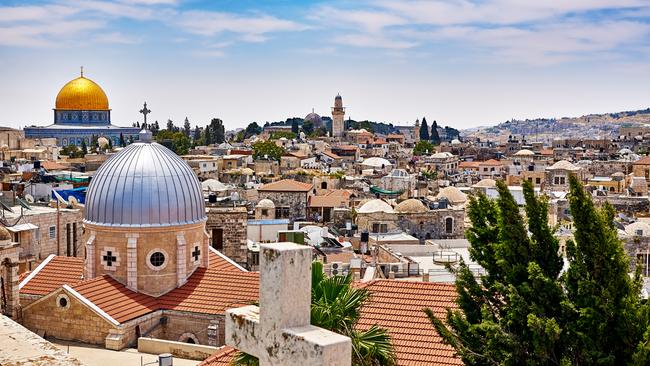Doc Holiday: Should I use a credit card or travel money card in the US?
The US is a great travel destination, but what is the best way to avoid the pitfalls of a lousy exchange rate?
Lifestyle
Don't miss out on the headlines from Lifestyle. Followed categories will be added to My News.
Escape's Doc Holiday, Dilvin Yasa, answers your travel-related questions.
My wife and I are headed to the United States but the poor exchange rate is getting us down. Would it be better to use cash, a credit card or a travel money card?
Ouch. Going to the United States really hurts the back pocket at the moment, doesn’t it? Although I can’t do much about the crummy exchange rate ($1 currently buys a depressing US65c), I can confirm you’ll need more than one way to access your money, including cash for all that tipping.
Graham Cooke, head of consumer research at Finder, warns against using regular credit cards, explaining they’re usually the most expensive way to buy items overseas, often adding a three per cent overseas transaction rate on top of the unfavourable exchange rate.
“Travel credit cards are available which bypass these fees, such as the Bankwest Zero Platinum MasterCard, which has a $0 annual fee and zero per cent foreign transaction fees, but it does charge a fee of up to $4 for taking cash out of an ATM,” he says.
Cooke recommends the Revolut Travel Money Card for those who want to also take out cash, since you can add up to $2000 per month in Australian and US dollars, pounds, euros and other currencies at a favourable rate with no fees as long as you exchange your funds on a weekday. “You can take out up to $350 equivalent in cash each month with no fees,” he adds.

I need to visit Israel later this year but I can’t find suitable travel insurance to cover my trip. What do you advise?
Smartraveller.gov.au’s current advice for Israel is “Reconsider your need to travel” but the ongoing conflict means insurance options are limited. Ordinarily I would advise you to steer clear for now, but noting your use of the word “need”, I’ll say you can certainly still find the odd provider willing to cover you.
The team at Compare Travel Insurance have put together their list of insurers you should speak with, although director Natalie Ball states that those looking to travel to Israel should do their “due diligence when searching for potential travel insurance options”.
Fast Cover, for example, currently provides cover for Israel, but will not cover any claim arising from an act of war, invasion, acts of foreign enemies, hostilities or warlike operations, but do cover for lost luggage or a personal medical emergency. PassportCard will provide cover for medical claims, but not for any losses caused by flight cancellations or delays into Ben Gurion International Airport, nor acts of war. Meanwhile, World2Cover continues to provide coverage for medical emergencies and events unrelated to the war, but will not cover any claim that arises from an act of war.
“While insurers will assess each claim individually, most travel insurance policies exclude war, acts of war and political unrest from trip cancellation coverage,” Ball says. “We would encourage travellers to explore alternative options first, such as obtaining a credit or rebooking arrangements directly through cruise, airline or accommodation providers.”
This is a good time to mention that the Department of Foreign Affairs and Trade travel advisory for Lebanon remains at “Do not travel”, which means Australian travel insurers will not provide cover.

I have 19,000 Star Alliance points and I’d like to surprise my wife with a trip to New Zealand. What would these points get me?
I’ve checked in with the team at Air New Zealand and someone with 19,000 Star Alliance points will receive about 152 airpoints dollars. Although this can be used on any flights on its website, that’s not enough to buy a return airfare to New Zealand. But all is not lost. Air New Zealand head of loyalty, Kate O’Brien, says, “If you don’t have enough airpoints dollars to buy the full fare, Airpoints Flexipay lets you pay for flights with a mix of airpoints dollars and cash. To make an Airpoints Flexipay booking, your available airpoints dollar balance must be at least 20 per cent of the total cost of the airfare.”
In this instance, your most clear-cut options include said Airpoints Flexipay, redeeming points for purchases on board such as meals or merchandise the next time you fly, or earning additional points through any new trips you have planned.
You can collect miles and points across Star Alliance’s 26 member airlines, and although I don’t recommend taking out a credit card, some choose to collect points through the HSBC Star Alliance Credit Card, where customers can collect One Star Alliance point per $A1 spent on eligible purchases (up to $3000 per monthly statement period), then a further 0.5 Star Alliance Point for every $1 spent on eligible purchases once you pass the $3000 mark.
Originally published as Doc Holiday: Should I use a credit card or travel money card in the US?



